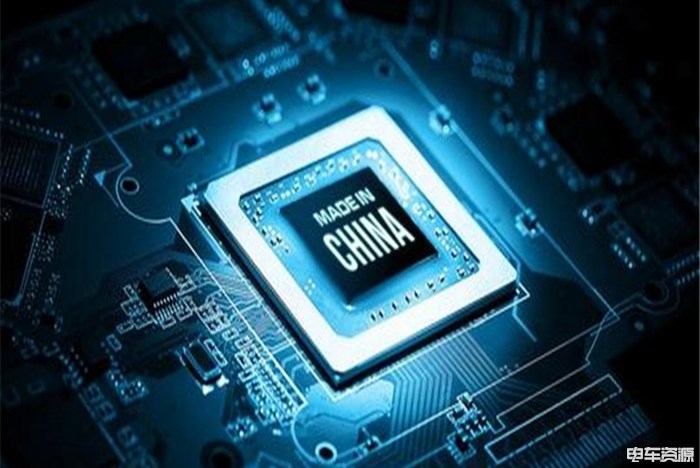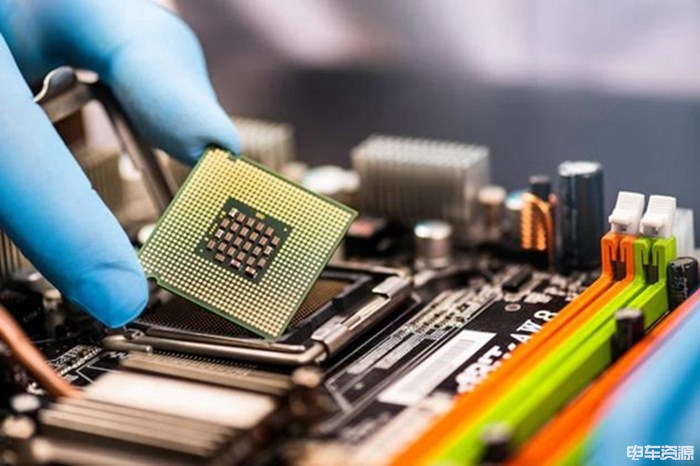Driven by the trend of automobile intelligence and electrification, the market demand for vehicle specification chips continues to increase. However, due to the epidemic situation and the complex international situation, in 2022, vehicle chips will be in short supply, chip prices will also rise "generally", and many vehicle manufacturers will reduce production and stop production.

In 2023, the national subsidy will be officially withdrawn. For the new energy logistics vehicles that are in the critical period of market-oriented transformation, the rising cost will become a shackle to their development, and the shortage of chips will also receive more and more attention from the industry. Can the shortage of chips be alleviated in 2023? Can chip prices fall?
In 2023, there will still be a shortage of chips, but it will be eased
In the past two years, due to the epidemic situation and the complex international situation, the chip supply continued to be short, leading to vehicle manufacturers to stop and reduce the production of vehicles. According to the latest data from AutoForecast Solutions (hereinafter referred to as "AFS"), an auto industry data forecasting company, as of December 11, due to the shortage of chips, the global auto market has reduced the production of about 4.351 million cars this year. However, the market's demand for new energy vehicles continues to be strong. CITIC Capital Construction forecasts that the global sales of new energy vehicles will be 21.78 million in 2025, accounting for 36% of CARG from 2021-2025.

Chips, as the "technical means" to realize automobile intellectualization and electrification, play an important role in the wave of four modernizations of automobiles. However, it should be noted that in order to ensure the stability, reliability and safety of the chips, manufacturers need to repeatedly debug and test the chips. The production cycle requires two to four years. Therefore, the dislocation of production capacity and demand of global car specification chips cannot be fundamentally solved from the perspective of cycle.
Shao Yuanjun, a senior expert in the automotive industry, believes that "in 2023, there should be a shortage of automotive chips, but the situation will be eased to a certain extent." He pointed out that the chip shortage was due to the physical factors such as the shutdown of chip suppliers and the sea and land transportation caused by the epidemic. With the full liberalization of the epidemic, the chip shortage will also be eased.
Sam Fiorani, Vice President of AFS Global Automotive Forecast, also agreed. He said that with the slowdown of chip demand in other industries, the supply of automotive chips may improve next year.
In fact, the alleviation of chip shortage is not only related to the liberalization of the epidemic, but also related to the expansion of chip suppliers.
Since chip shortage, the global semiconductor industry and chip suppliers have taken action. According to the World Wafer Factory Forecast Report, the global semiconductor industry is expected to invest more than 500 billion dollars in the 84 large-scale chip manufacturing plants that will be built between 2021 and 2023. The market segments, including automobiles and high-performance computing, will drive spending growth. Chip suppliers TSMC, Infineon, and Ansomy have announced production expansion.
The domestic chip industry started late. At present, about 50% of the chip industry has achieved mass production
From the chip itself, due to the high requirements for safety, reliability and stability of the car specification level chip, and the high technical barriers from design and development to streaming, the current market of MCU chips with traditional functions is still dominated by Europe, America and Japan, while China started late in the chip industry, which is relatively backward.
However, the number of domestic chip design enterprises has grown rapidly in recent years in the wave of automobile industry transformation to "electrification" and "intelligence". According to tram resources, at present, there are about 110~130 enterprises in China that develop and produce automotive chips, of which 50% have realized mass production applications.

At the same time, domestic chip factories are increasingly favored by host manufacturers. In addition, automobile enterprises have launched strategic investments in chip factories. In July this year, BYD Semiconductor invested 100 million yuan to establish a new semiconductor research and development company; In September, SMIC International Tianjin Xiqing 12 inch chip project officially started. In addition, enterprises such as Microelectronics, China Resources Microelectronics and New Clean Energy have made breakthroughs in IGBT products.
In fact, in order to deal with the "choke" of the United States on Chinese chips, China has clearly proposed that the localization rate of 90-32nm equipment will reach 50% by 2020, 40% by 2025, and 70% by 2025.
However, it is worth noting that although the number of chip design enterprises in China has increased rapidly in recent years, there is still a large gap between the scale of enterprises and the international first-line manufacturers. Most domestic vehicle specification products have only passed the preliminary certification, and there is still a long way to go. Zou Guangcai, Deputy Secretary General of China Automotive Chip Industry Innovation Strategic Alliance, suggested that chip design enterprises should reflect their product characteristics and technical advantages in product layout to avoid falling into disorderly competition of low-end products.
Vehicle enterprises can adopt various ways to relieve pressure
The use of chips can enable vehicles to realize various functions quickly and flexibly. With the promotion of the electrification strategy of logistics vehicles, the intelligent development of new energy logistics vehicles has become a trend. According to tram resources, the current mainstream new energy logistics vehicle products have an increasing demand for chips in terms of intelligence.

As a relatively independent existence in the logistics electrification industry, UFO Q2 has dozens of ECU modules, that is, dozens of master control chips MCU. These dozens of master control chips MCU are respectively configured in anti lock braking system (ABS), body controller (BCM), air conditioning controller (CLM), electric power steering system (EPS), instrument controller (ICM), motor controller (IPC), remote monitoring (TBOX), vehicle controller (VCU), high-voltage collection box (HDM), on-board charger (OBC), DC/DC converter (DCDC), battery management system (BMS), pedestrian alert system (AVAS), etc.
The shortage of chips makes the enterprise supply chain unable to supply normally, and at the same time significantly increases the cost. How should car companies cope? Shao Ping, the minister of the new energy technology department of UFO, said in an interview with tram resources earlier: "As a traditional commercial vehicle engine factory, UFO has a mature supplier system and has established a deep cooperation relationship with suppliers. In terms of chip shortage, we will actively seek for sources of goods and prepare them in advance according to the rolling production plan. "
In addition to stabilizing the supply of suppliers, some industry reports suggest that OEMs develop or even produce their own semiconductors according to their own conditions, or adopt strategic investments, joint ventures, and mergers and acquisitions to achieve a multi supplier strategy, or participate in the R&D, design, manufacturing, and packaging of chips by chip companies.
AMS2024 Exhibition Guide | Comprehensive Exhibition Guide, Don't Miss the Exciting Events Online and Offline
Notice on Holding the Rui'an Promotion Conference for the 2025 China (Rui'an) International Automobile and Motorcycle Parts Exhibition
On September 5th, we invite you to join us at the Wenzhou Auto Parts Exhibition on a journey to trace the origin of the Auto Parts City, as per the invitation from the purchaser!
Hot Booking | AAPEX 2024- Professional Exhibition Channel for Entering the North American Auto Parts Market
The wind is just right, Qianchuan Hui! Looking forward to working with you at the 2024 Wenzhou Auto Parts Exhibition and composing a new chapter!
Live up to Shaohua | Wenzhou Auto Parts Exhibition, these wonderful moments are worth remembering!
Free support line!
Email Support!
Working Days/Hours!





